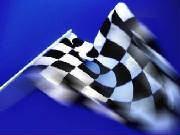|
Insights Newsletter: March 2014
The results people achieve in virtually every facet of their lives can be reduced to and succinctly expressed by the following formula: M x (KSA + G) x E = B → R The characters in this formula stand for the following: Motivation impacting on Knowledge, Skills and Attitudes plus Goals interacting within a specific Environment generate performance Behaviors which drive Results. The relevance of this formula can be more easily understood and appreciated if we begin at the end and work backwards. Our results [R] in life represent the outcomes we derive from our daily actions or performance Behaviors [B]. Simply put, what we get out of life is primarily the result of what we personally do. Certainly there is no denying that some of what we get is simply the result of things that happen to us through no effort or fault of our own as a result of factors at work in the environment [E] in which we live and work. Our environment can have a significant impact on our performance behaviors, either enhancing our efforts or diminishing them and consequently, can have an impact on our results. However, while there are some things that are out of our control, most of what we achieve or not achieve, is the result of our own intentional behaviors. One of the key factors that determine our behaviors and therefore, our results is our goals [G]. All behaviors are goal-directed whether we are consciously aware of it or not. It is our drive to achieve goals that generates the results we get. We get what we are currently getting out of life (our results) because of our current behaviors, and our current behaviors are to a very large extent determined by what we set out to achieve (i.e., our goals) on a daily basis. more about effective goal setting The problem usually is not so much that people do not have goals, it is that their goals are often not clearly defined, set too low or are intrinsically counterproductive. Since results stem from our behaviors and our behaviors are determined by our goals, the quality of our goals, therefore, can have a significant impact on our results. If we are unhappy about our results in life or work, one reason may be that our goals are not properly aligned with the outcomes we claim to desire. Since behaviors are driven by the desire to achieve goals, it stands to reason that to improve results in any area of life it is necessary to establish clear, attainable and rewarding goals in each area.
Hardly anyone would dispute the importance of knowledge and skills [K&S] in personal achievement. Knowledge and skills play a significant role in determining the effectiveness of individual and organizational goal-directed behavior. The more a person knows about a task or activity and the more skilful he or she is in executing it, the greater is the likelihood that the person will succeed at it. Another way of saying it is that knowledge and skills are key enablers for achieving goals.
The [M] in this equation represents motivation. Motivation can be defined as the degree of drive, persistence and intensity of effort expended by an individual to achieve a specific outcome. It is that force which moves a person to take action; that which gives purpose and direction to behavior. Motivation can be external (extrinsic) such as with some sort of incentive or reward or internal (self-motivation). Internal motivation, also known as personal motivation, is an unobservable force within an individual that generates his or her effort, drive and persistence toward the achievement of a goal. Motivation is generally described as deriving from people’s needs and the decision processes they use to satisfy their needs more on "needs theory" and motivation. The degree and strength of a person’s motivation is the single most important determining factor in the extent to which he or she will acquire essential knowledge and skills, shape productive mental attitudes, set effective goals and commit to do what needs to be done to achieve desired results. The bottom-line goal of performance improvement is improved results. As stated above, one cannot generate improved results by continuing current behaviors. There must be a positive change in performance behaviors for there to be a positive change in results, and this positive change in performance behaviors can be derived by a positive change (improvement) in any or all of the elements that constitute the performance formula. We can then construct the following “success formula” to represent the concept of performance improvement: M↑
x (KSA↑ + G↑)+ E↑
= PBC → IR
Home l About us l Performance Consulting l Training & Development l Business Coaching l Transformational Coaching l Self-Leadership l Success Formula l Dynamics of Goal-Setting l Personal Motivation l Life Wheel l Success Formula l Performance Glossary l Contact us |

Symbiont Performance Group, Inc.
"Winning Performance Strategies"